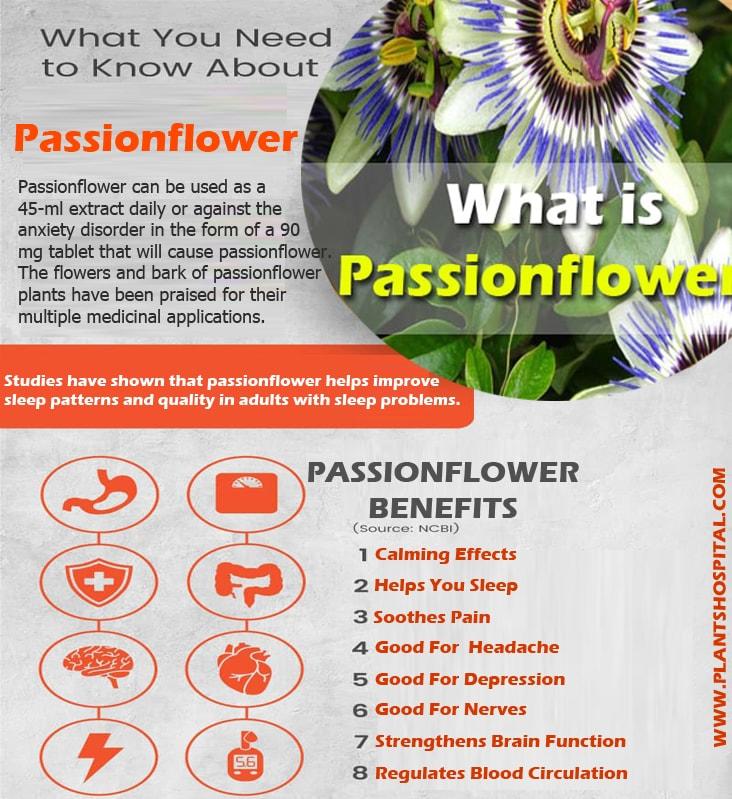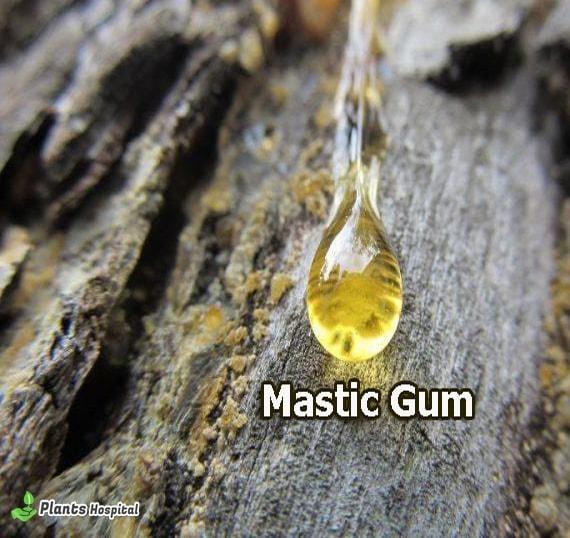Passionflower plant is known for sedative (sedative and relaxing), hypnotic (sleep transmitter), anxiolytic (anxiety reliever), analgesic (pain reliever) and antispasmodic (spasm reliever) effects.
Table of Contents
What is Passionflower?
Passionflower can be used as a 45-ml extract daily or against the anxiety disorder in the form of a 90 mg tablet that will cause passionflower. The flowers and bark of passionflower plants have been praised for their multiple medicinal applications.
How To Use Passionflower?
Tea: 1-2 g. 150 ml hot water is added on the plant part and after waiting 10 minutes, it is recommended to drink the tea obtained 1-4 times a day. If in tea bags, tea can be prepared in the same way using 1 tea bag.
It should be used in products such as liquid extracts, syrups, and tablets in the quantities given in the product prospectus.
Watch Video: 11 Proven Health Benefits Of Passionflower
- 8 Health Benefits Of Tomato Juice
- 7+ Science-Based Benefits Of Lemon Tea
- 5 Proven Health Benefits Of Fruit Teas: Types, Uses And How to Prepare?

11+ Best Health Benefits Of Passionflower
1. Calming Effects
Passionflower can also help with problems such as stress and insomnia. It increases the level of the chemical called GABA in your brain, which reduces your brain activity. It is perfect to help you sleep.
In an experiment, it was observed higher sleep quality that people who drank herbal tea containing passionflower for seven days.
In addition to helping sleep, an experiment has also shown the ability of passionflower to regulate anxiety disorder.
2. Helps You Sleep
Studies have shown that passionflower helps improve sleep patterns and quality in adults with sleep problems.
3. Soothes Pain
Also, to use as calming and reducing anxiety, passionflower affects calming pain. If your menstrual period is very painful or if you are suffering from mild headaches, you can try this plant.
It has also been observed that passionflower may have a mitigating or perhaps completely relieving effect on muscle discomfort and toothache.
Is Passionflower Good For Headache?
The soothing and anti-spasm effect of the passionflower plant helps to relieve physical pain on the skin.
This plant is also very useful for headaches, toothache and muscle aches. If you regularly experience ligament pain or muscle pain, the passionflower plant may be your savior.
Is Passionflower Good For Depression?
It helps to increase GAMA (gamma-aminobutyric acid) hormone in the brain thanks to chrysin and benzoflavone in content.
It relieves nerves and stress. It is also good for the treatment of sleep problems. passionflower contains alkaloids, monoamine oxidase.

Is Passionflower Good For Nerves?
It contains chrysin and benzoflavone to help increase the brain’s Gamma (Gamma-aminobutyric acid) hormone. It relieves nerves and stress. It is also good for the treatment of sleep problems.
Health Benefits Of Passionflower Tea
It Is Calming: The main benefit of this tea; to relax the mind and body, to calm the nerves. It makes people calm and relaxing. It can help in stressful and anxious situations.
It Strengthens Nerves: It is an ideal tonic for nerves. By strengthening nerves, improves blood flow to the nerves, reduces anxiety.
It can help with mental disorders such as restlessness, anxiety disorders, and hysteria. It has also been shown to have effects on mild depression or stress-induced disorders.
Passionflower Tea For Insomnia: This herbal tea can overcome insomnia. It helps to get a restful sleep without feeling numbness seen in other calming supplements. By calming the mind, it can prevent obsessive thoughts that awaken at night.
Passionflower Tea For Depression: Passionflower tea is a relaxing tea against feelings of depression, calming the body and mind. It relieves nerves by reducing intense negative thoughts.
In this case, it supports the most needed sleep. A doctor should be consulted before using it together with depression medications!
It Is Pain-Relieving: Infusion provides analgesic effects to relieve various pains. It helps to soothe migraines, tension headaches, and toothaches. At the same time, positive effects have been seen in cases of fibromyalgia (chronic pain syndrome) without side effects seen in most sedative drugs.
Muscle Relaxant: Passionflower tea can help to relax muscles, prevent muscle spasms and reduce tension in the body. It may also be particularly useful for seizures.
Its soothing and antispasmodic effects reduce cramps, helping to improve digestive pain and stress-related intestinal colic. It can be used in epilepsy with regular treatments.
It helps to relieve muscle pain caused by seizures; reduces the frequency and severity of seizures.
Strengthens Brain Function: It can help maintain concentrations in hyperactive children or adults with Attention Deficit Hyperactivity Disorder (ADHD).
This herbal tea is often recommended to calm nervous twitch and agitation. Although stated that can be used against the negative effects of Parkinson’s disease, more scientific research is needed on this subject.
It Regulates Blood Circulation: It can help lower blood pressure by improving blood circulation. Especially against hypertension, the soothing properties of this tea can produce effective results.
This herbal tea is recommended in cases of palpitations, irregular heartbeat or tachycardia (heart rate more than 110). Before using together with heart medication, consult a specialist doctor!
It Balances Hormones: It balances estrogen production by increasing excess testosterone production. This can also be beneficial for men. It can even act as an aphrodisiac.
It also calms pre-menstrual syndromes (PMS) and menstrual pain in women. It can also relieve the stress that is often encountered during this period.
By providing hormone balance in women, can regulate the menstrual cycle. It is also reported to help relieve symptoms such as sweating and mood disorders in women who have entered menopause.

How To Brew Passionflower Tea?
The flowers, leaves, and stems of the plant are used for passionflower tea. Fresh or dried leaf flowers can be used. It’s very easy to brew.
To prepare a cup of passionflower tea; 1 teaspoon dried or 1 tablespoon fresh passionflower and 100 degree boiling water is required. The following method can be followed to brew tea;
- Boil the water at 100 degrees.
- Prepare 1 teaspoon of dried passionflower per cup.
- Pour boiling water over the plant.
- Allow to brew for about 5 to 10 minutes.
- Then serve tea by straining.
- You can add honey or sugar to sweeten the tea according to preference.
- It can be consumed by mixing with chamomile, lemon balm, valerian or St. John’s Wort teas.
- Adding chamomile tea and lemon balm will increase the calming effect.
- Valerian tea can alleviate a strong aroma.
Note: It is recommended to drink 3 cups of this tea a day to calm down and soothe the nerves. If you have insomnia, you should drink 1 hour before going to bed!
Side Effects Of Passionflower
Pregnant women and breastfeeding women should never use the passionflower plant. People who use blood thinners, people with acute or chronic diagnostic conditions should consult a specialist or even their doctor before using passionflower.
In particular, anyone who regularly takes any form of medication should consult their doctor. The time at which passionflower use will not interact with other drugs should be determined or the recommendation of use should be evaluated.








